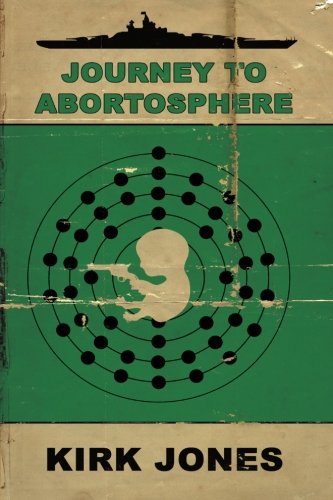
by Gabino Iglesias
I interviewed Kirk Jones when he was part of the NBAS (seventeen years ago according to my math). He was a cool guy and we quickly became friends. Since then, we’ve talked books on more than one occasion and I’ve bothered him about his next book from time to time. Now we have two reasons to celebrate: Kirk is showing us his stuff and he has a new book out. Also, you’ll get to read some cool words from a cool guy. Dig.
Gabino Iglesias: Who are you and what role do books play in your life?
Kirk Jones: I’m Kirk Joooooones! Books are an integral part of my life. I’m not very good at social interaction, so reading the books of fellow authors and complimenting their endeavors is one of the only ways I know how to interact with others. Sometimes I get free books out of the deal, so this is a win/win situation.

GI: One would be lazy of you, so tell me the ten last books that impressed you and why.
KJ: Holy shit. Let me try not to be generic here. I will probably fail.
Venus in Furs – I have an un-struck reviewer’s copy of Venus in Furs from the 40s that I’m absolutely in love with. It isn’t just the book itself. It is the collectability factor. Venus in Furs is a bit pretentious and overblown in terms of style, but it contains a lot of insights.
Tertium Organum: A Key to the Enigmas of the World – there is a certain appeal when it comes to knowledge that can’t be fully comprehended, like the Voynich manuscript. Tertium Organum was my Voynich manuscript when I was a young teenager. It is a book I have yet to explore in depth since I was young. It is a tomb of mystery that I’m afraid to decode, because I believe we need some element of mystery in our lives. I’m afraid to find that, upon my next reading, it isn’t as mysterious as I originally thought.
Principia Discordia: one of the books from Loompanics that I bought when I was young. It is a book that reaffirms the fact that mystery is sometimes built upon non-sequitur and ultimately lacks substance. It doesn’t impress me anymore, but it used to. The idea of this book was more important than the content. What it represents is impressive, however.
Edgar Allan Poe: Miscellany – This book has a chapter on autography, and a chapter on spirituality (an essay called Eureka). Before the internet, this book was a huge deal to me. Folks could chat all day about detective fiction or Poe’s popular horror work, but this book was obscure in the print age, at least in my neck of the woods.
M Butterfly – I love this play. It deals with gender identity, conquest, imperialism, love & sexuality, and everything that was important to me as a young adult. Now if someone would write a play about kids driving you nuts and ear and back hair, I’d have something to relate to in my 30s.
Psychological Operations FM 33-1 – when I was in high school, my mother would buy me military manuals. One of the only ones I have left is “psychological operations,” which is essentially a manual on propaganda. It deals with broadcast and media operations. You know FOX News has a copy of this shit laying around. Actually, they probably don’t. They don’t seem to have to put much thought into brainwashing. Folks pretty much do it to themselves these days.
From Hell – a few years ago, my wife found a feral cat and essentially replaced me with this fucking demon spawn. It pissed all over my comic books and chewed many of my DVD’s apart. From Hell is one of the only comics that survived. (It still has a bit of piss in one of the corners). I wrote a paper on it, one of the only graduate papers I am still proud of. I love this graphic novel.
A Song of Ice and Fire – yeah, I know it is “mainstream” and all that, but I really have fallen in love with this series. I’m on book four right now, and I love it. Jaime Lannister is currently my favorite character . . . because of his actions in the book, not the television series. Plus he’s a stud.
Fill the Grand Canyon and Live Forever – This was the second Prunty book I read, but I loved this one the most. The main character had this basic sense of purpose that took him to so many strange places. It was surreal, yet not too far removed from reality. It is so hard to categorize the book in terms of genre. I wouldn’t say it is bizarro. It was just one of those books that clicked for me and made me think, “Down the road I’d like to do something like this.”
The Greatest Fucking Moment in Sports – still THE BEST bizarro book I have ever read. The humor is top notch. The experiences are thought provoking. The characters are charismatic. I love this book. When I was first invited to submit to EP, I submitted to Rose mistakenly. She sent me to Kevin, which was the greatest honor in the world. Initially I had hoped to write something in the vein of this book, and while I’ve peppered my work with humor, I realize I’m not going to top this one and it is time to move in a different direction. Still, EVERYONE trying to get a gig in bizarro should read this. Hell, everyone should read this regardless of whether they’re into bizarro or not.

GI: Not everyone knows you have a wonderful family and an academic career, so maybe they’re wondering something along the lines of “Why the hell did it take so long to get more Kirk Jones books?!” Could you explain?
KJ: Kevin Donihe accepted a pitch for Journey to Abortosphere back in 2011. I procrastinated on the book until pitch-a-palooza came around. As a result, I lost my spot for potential publication. During that time the whole Spectacular Productions mess occurred. I was really banking on one of those two books making the cut in 2013 at the latest. It simply didn’t pan out. Rooster Republic picked up Journey to Abortosphere in 2013 (for publication in 2014) and Masturbatory Entropy has yet to find a home. Frankly, at this point I’m trying to find a home for my next novella, which I discussed on Surreal Grotesque with Jeremy Maddux. William Pauly III is checking it out currently. I plan on sending it to a few others in the near future for review.
GI: You were in the first NBAS group that had an impact on me. What does that experience look like to you now? What did you learn?
KJ: Being a part of the NBAS 2010 crew was completely wild. I remember getting off the plane and taking a cab to Edgefield. I met Steve Lowe first, and Caris second. I remember my mother bought copies of my book, but I was directed by EP not to look at the book until getting to Edgefield. That was incredibly hard, but I waited. We got in there and found out that Caris had already sold a shit load of books before we even got there.
I hit up a lot of high school friends and family members to pick up my book. Caris and Steve Lowe helped me market my book to a larger audience through Goodreads. It worked out quite well. It helped me grow as an author as well. My first book was a great start, but it was by no means great. Folks pointed out what they didn’t like. I was receptive to the criticism. You really don’t have a choice. If people don’t like your work, you have to take their viewpoints into consideration if you want to improve sales.
There were times where being published was kind of anti climatic as well. Once the rush wears off, you start to realize that we’re all just human beings doing our thing. Then you notice the typos you missed in the book, and things that could have been better. It really undercuts that fantasy of being a published author that inspires many people to write. If you can make it past that and you still want to write, I think that’s a milestone. That’s one of the big things I learned by being a part of NBAS.
GI: You’re a really mellow/nice/cool guy who doesn’t like drama. What the fuck is WRONG WITH YOU?
KJ: A little drama is fine, necessary even, as long as it is under the table. When it goes public, it becomes problematic. I think we all get a bit paranoid as authors. We all deflect blame to a small degree if our material isn’t accepted. We all have the potential to take vague gestures personally. I know I’ve gotten unreasonably upset about small things in the past, but I also know it is irrational and that there are certain people I can vent to, and certain people who don’t want to hear it. What is strange is the dual standard when it comes to drama. Not just in small press writing, but everywhere. Folks seem to get uptight when things are said in public venues, then get equally pissed if they hear something through the grapevine and throw the whole “say it to my face” bit around. I think as a movement we have a responsibility to keep things behind the scenes. Confrontational situations aren’t going to help anyone.
It takes a while to grow thick skin. It’d be nice if folks could learn to keep their mouths closed while they grow that thick skin instead of lashing out at others. We all have the impulses the worst of us exhibit in the community, at least to a very small degree. A bunch of writers in a circle, all trying to get published by the same group of publishers . . . it is a volatile dynamic.
GI: What’s your latest book about and why should we all buy it right this second?
KJ: The sci-fi elements tend to get highlighted in this work, but there’s so much more to Journey to Abortosphere than that. When it comes down to it the conspiracy elements are minimal, as are the science fiction elements. The book is just as much about the absurdity of small-town living, social norms, and the fact that we persist no matter how bleak and mundane our lives become.
Also there’s sex with shoe horns, gluteomancy.
Finally, it is not Frozen.

Gabino Iglesias is a writer, journalist, and book reviewer living in Austin, TX. He’s the author of Gutmouth and a few other things no one will ever read. You can find him on Twitter at @Gabino_Iglesias
This post may contain affiliate links. Further details, including how this supports the bizarro community, may be found on our disclosure page.

